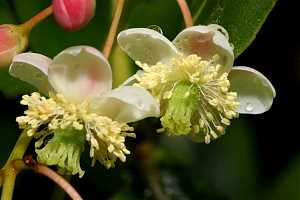Uruguay Constitution Day:
The Portuguese discovered Uruguay in 1512. Before then there were only the nomadic Charrua, who were driven there by the Guarani from the north about 4,000 years ago.
The Spanish arrived in 1516. The Charrua killed one of the Spanish explorers the year before, and their fierceness combined with the lack of treasure in Uruguay meant no one fancied settling there until 1603 when Spain introduced cattle.
Then the British, Spanish and Portuguese fought over it – Spain mostly won but in 1806-7 Britain did manage to seize the capital, Montevideo, as part of the Napoleonic Wars (that sounds like a tenuous excuse).

In 1811 José Gervasio Artigas revolted against the Spanish authorities and defeated them.
A new government was formed in Buenos Aires, and Artigas said every area should have its own political and economic autonomy, particularly east of the river Uruguay in the Banda Oriental.
The new government ignored him, so he broke with Buenos Aires and seized Montevideo. Artigas organised a Liga Federal of six states (four of which became part of Argentina).
In 1816 the Portuguese invaded from Brazil and took Montevideo the next year.

Brazil became independent in 1822, and three years later the Thirty-Three Orientals, a revolutionary group led by Juan Antonio Lavalleja, declared independence, fought for 500 days about it, and eventually Britain got involved and negotiated independence for them on 18 July 1830.
A year later, Bernabé Rivera, the nephew of the new president Fructuosa Rivera, invited the remaining Charrua people (remember them?) to meet him, then killed all the men and enslaved the women and children. Nice.
A couple more massacres later and there were only four Charruas left: they were taken to France to be shown off like a circus act, and they all died, including a baby that was born to them on the journey. There is a monument to them in Montevideo called Los Últimos Charrúas.
Then Uruguay became split between two political parties: the Blancos, who were conservative farmer types, and the Colorados, who were liberal business types.

Oribe.
In 1838 the Colorados led an army and overthrew the Blanco president, Manuel Oribe. He fled to Argentina, ruled by Manuel de Rosas.

Rosas.
So then Colorados leader Fructuosa Rivera declared war on Rosas (not sure I entirely understand why). The war lasted 13 years and is called the Guerra Grande, or Great War.
In 1843 Argentina started trying to take Montevideo in a siege that lasted 9 years and ended up involving Italian and French troops on Uruguay’s side.
In 1849 Britain and France negotiated in favour of Rosas.
Eventually Oribe was defeated when there was an uprising against Rosas by his own people and also Brazil got involved on the Colorados’ side.
In 1865, the emperor of Brazil, the Argentinian president and the Uruguay (Colorado) president formed a Triple Alliance and went to war on Paraguay. No reason given.The Paraguayans call this one the Guerra Grande because it devastated them.
Then followed the usual list of insurrections, military rule, coups, and some nice presidents; they jumped in at the end of WWII with the rest of the Americas; in the late 1950s there was an economic dip which led to everyone getting a bit violent, and by 1973 the country was under oppressive military rule for 12 years. In 1984 they went back to democracy.
Now Uruguay is top in Latin America for democracy, peace, lack of corruption, quality of living, and top in South America when it comes to press freedom, prosperity and security. It also supplies more troops to the UN than anyone else in the world. It has recently legalised cannabis, same-sex marriage and abortion, making it one of the most liberal nations in the world.
Activities: Play football, or make a sand sculpture:

Nelson Mandela Day
Nelson Mandela (1918-2013) campaigned against the apartheid in South Africa. In 1962 he was imprisoned for trying to overthrow the state and served 27 years. In 1994 he became South Africa’s first black President. He didn’t stand for a second term and instead set up the Nelson Mandela Foundation to combat poverty and HIV.


_-_Waterloo_1.jpg)






































